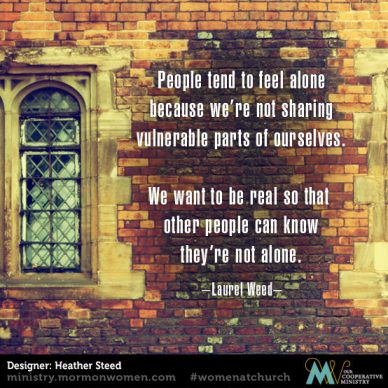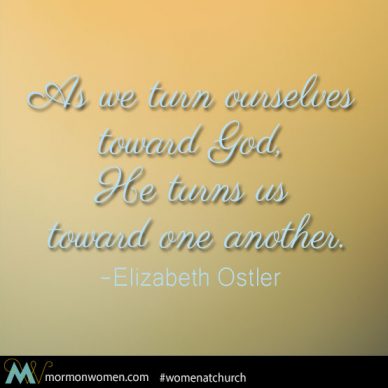The Gospel Doctrine lesson #36; scriptures 3 Nephi 1-7
The drama of 3 Nephi 1 always takes me by surprise. Without fail, I feel a tingle of suspense at the plight of the believers, their dramatic moment before the fulfillment of the most important prophecy of all.
We know the end of the story. The miraculous sign occurs in the nick of time to save these believers from an unjust death sentence. And in the words of the manual, the people’s faith is “vindicated”
when the prophecies are proven to be true. The Nephites’ belief becomes a certainty, and many nonbelievers (though not all) are also convinced to trust in the redemption of Christ.
I love this chapter, but when it comes to likening scripture to my own life it’s one that I’ve come to read with some caution. There’s only so much I can relate to in this politically and socially fraught narrative. After all, few if any of us are in such a starkly oppositional si tuation of external pressures on our religious beliefs. Instead, the drama of faith takes place within myself. My own belief and unbelief are in constant dialogue. Doubts glibly take the oppositional role, and like the persecutors of the faithful in 3 Nephi, my unbelieving side weighs the promises of scripture and the Holy Spirit and creates ultimatums and deadlines for them. When it comes to my spiritual and temporal hopes and dreams, I sometimes become preoccupied with vindication, looking for proofs and certainties that are frustratingly slow to take shape.
tuation of external pressures on our religious beliefs. Instead, the drama of faith takes place within myself. My own belief and unbelief are in constant dialogue. Doubts glibly take the oppositional role, and like the persecutors of the faithful in 3 Nephi, my unbelieving side weighs the promises of scripture and the Holy Spirit and creates ultimatums and deadlines for them. When it comes to my spiritual and temporal hopes and dreams, I sometimes become preoccupied with vindication, looking for proofs and certainties that are frustratingly slow to take shape.
I think it’s this hope for vindication that makes me sad and envious when I encounter 3 Nephi 1. These people had every whit of prophecy fulfilled before their eyes (3 Ne 1:20). All their expectations were satisfied, with little room left for doubt and discouragement. But my life isn’t like that. It has a full share of disappointments and doubt. I’ve been given promises that weren’t met, priesthood blessings that haven’t quite worked out as hoped, moments of personal inspiration that I haven’t seen fulfilled yet. My religious beliefs have never been proven beyond doubt to any general public. I’m still struggling along with faith, not knowledge—-with hope, not fulfillment.
When I think about this imperfect faith, I find an ally in the Apostle Paul. Our Relief Society motto, “Charity Never Faileth” in fact is taken from Paul’s epistle, 1 Corinthians 13:8. We don’t often read the verses that follow this motto, but they are ones that I relate to: “For we know in part, and we prophesy in part. But when that which is perfect is come, then that which is in part shall be done away” (1 Cor 13: 9-10).
When I think of the gray areas of uncertainty that are always hovering around the edges of my belief, I’m grateful for these words. If even Paul could speak of imperfect prophecies, then I don’t need to worry quite so much at the flaws I see in myself and my community of faith. The plan of God may be perfect, but its actualization in this human world encounters plenty of bumps and pitfalls. But Paul doesn’t simply resign himself to partial knowledge and partial prophecies: His answer to this uncertainty is charity, the pure love of Christ.
Can charity play a part in the faithful endurance demonstrated in 3 Nephi 1?
I think about the nonbelievers in this story. Their greater sin was not their unbelief, but their hatred toward those who believed. And what about the believers? Was their greatest merit in sticking to a claim, beyond reason and against all hope? This kind of faith certainly does take courage and determination. But the point of the Lord’s coming is not primarily to prove these believers right. Instead it is to bring God’s love to humanity. When the sun set on that dramatic evening, and the sky stayed bright, there wasn’t any need for the believers to say “I told you so.” In the general astonishment of that moment, I hope what they felt was an overwhelming sense of love, a realization that Christ was being born among believers and non-believers alike, that his mortal sacrifice would send ripples of selflessness throughout history. The concrete fulfillment of prophecy is dramatic in this story, but the real vindication comes in the realization of this love. God has a perfect plan. His plan is one of love.
Related Mormon Women Project Interviews

Other Related Women’s Voices



Looking for additional perspectives on this lesson? We recommend Mormon Sunday School, Meridian Magazine and LDSLiving.
